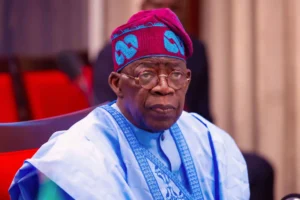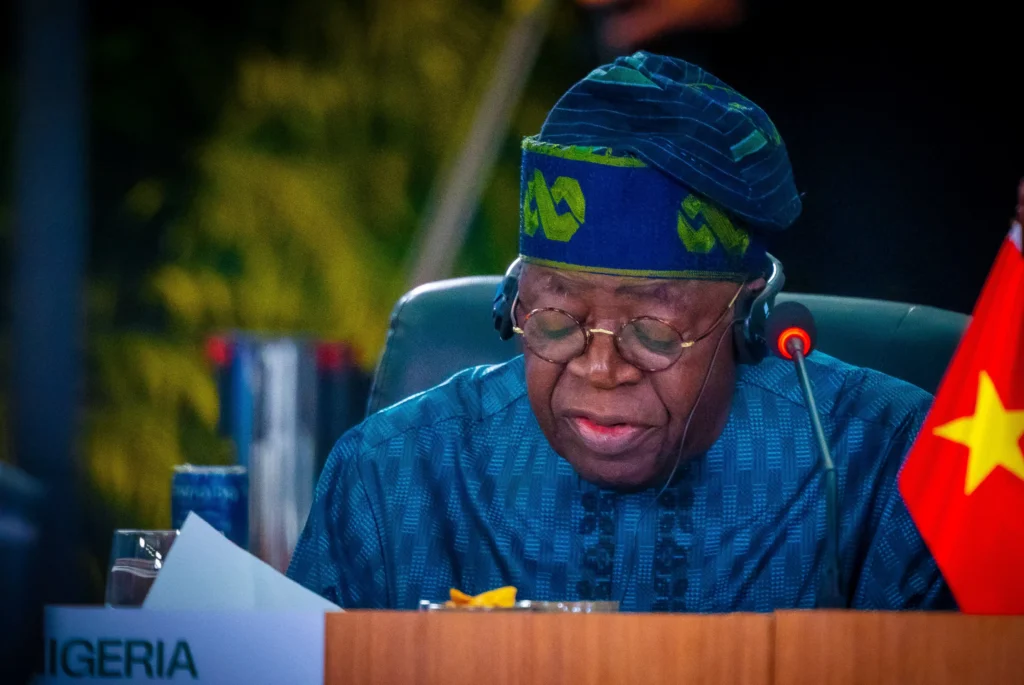President Bola Ahmed Tinubu has voiced deep concern over the alarming estimate of 20 million out-of-school children across Nigeria, calling the situation a “ticking time bomb” that demands immediate and sustained intervention. In a bold move to confront what he termed a national emergency, Tinubu outlined a multi-pronged strategy that includes school feeding programs, mass teacher recruitment, and the construction of new schools nationwide.
Speaking at a high-level education summit in Abuja, the President lamented the rising learning poverty in Nigeria, particularly in rural and conflict-prone regions, noting that the growing number of children denied basic education poses long-term threats to national development, stability, and prosperity.

“We Cannot Ignore 20 Million Nigerian Children in the Dark”
President Tinubu declared that no economy can thrive when tens of millions of its youngest citizens are locked out of learning. According to him, the 20 million figure “should make every leader in this country lose sleep,” emphasizing that the education crisis is as urgent as the economic and security challenges Nigeria currently faces.
He pointed to global comparisons showing Nigeria as home to one of the highest numbers of out-of-school children in the world, with millions more suffering from learning deficits even while enrolled.
“We are facing a human capital catastrophe. If we do not educate these children now, we will be fighting poverty, insecurity, and underdevelopment for generations,” Tinubu warned.
Presidential Action Plan: Feeding, Staffing, Building
To address the crisis, President Tinubu unveiled a three-pronged approach designed to get children into classrooms and keep them there:
-
Revamping the National School Feeding Programme
Tinubu announced plans to reintroduce and scale up the school feeding initiative, particularly in vulnerable communities. The program, which had been suspended in several states, will be redesigned to provide nutritious daily meals, incentivizing school attendance and improving learning outcomes. -
Massive Teacher Recruitment Drive
Acknowledging the severe shortage of qualified teachers, Tinubu directed the Ministry of Education and state governments to launch urgent teacher recruitment campaigns. He stressed the need for trained, motivated, and well-paid educators to ensure that no classroom is left unattended. -
Construction of New Schools in Underserved Areas
The President promised an ambitious school infrastructure program aimed at building new classrooms, rehabilitating dilapidated schools, and equipping them with basic learning materials. He added that special attention would be given to internally displaced children, nomadic populations, and conflict-ridden zones.
Partnership with States and Development Agencies
President Tinubu emphasized that the Federal Government alone cannot resolve the crisis. He called on state governments, local authorities, and international development partners to collaborate and co-fund strategic education initiatives.
He expressed readiness to work closely with bodies like UNICEF, the Global Partnership for Education (GPE), and the World Bank to secure both technical and financial assistance for achieving universal basic education in Nigeria.
“The Federal Government will not work in isolation. Education is a shared responsibility. Our states must step up, our communities must engage, and our global friends must support,” he added.
Early Childhood Education and Special Interventions
In addition to tackling the out-of-school crisis, Tinubu’s plan includes a renewed focus on Early Childhood Care and Development Education (ECCDE). He emphasized that laying a strong learning foundation from the early years is crucial for long-term academic success.
The President also mentioned plans to implement conditional cash transfers to poor families who send their children to school, support girls’ education, and develop alternative learning programs for children in remote or nomadic settings.
“We Must Educate Our Way Out of Poverty and Insecurity”
President Tinubu’s statement reinforces a broader shift in the government’s education agenda—one that ties national transformation to educational reform. With youth unemployment rising and insecurity escalating, the President argued that providing universal basic education is the most sustainable pathway out of both poverty and violence.
He reiterated that Nigeria’s future depends on how well it educates its children today, adding, “No road, no bridge, no building can give us the return on investment that educating a child does.”
Looking Ahead: Implementation and Accountability
President Tinubu concluded by urging swift action and transparency in implementing the rescue plan. He directed relevant ministries and agencies to submit implementation frameworks within 60 days and pledged to track progress through periodic monitoring and public reporting.
With this renewed focus on rescuing the out-of-school population, President Tinubu hopes to reverse Nigeria’s education decline and unlock the potential of millions of children who have been left behind.
“Let this be the beginning of a national education revival. We will not rest until every Nigerian child is in school, learning, and dreaming big,” he affirmed.







